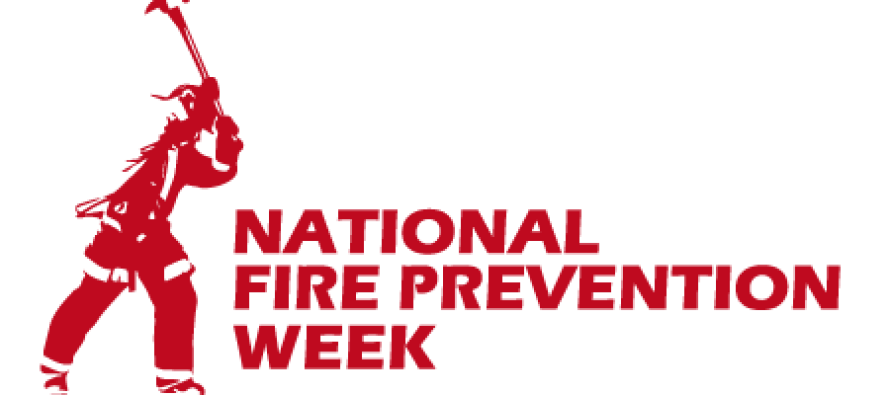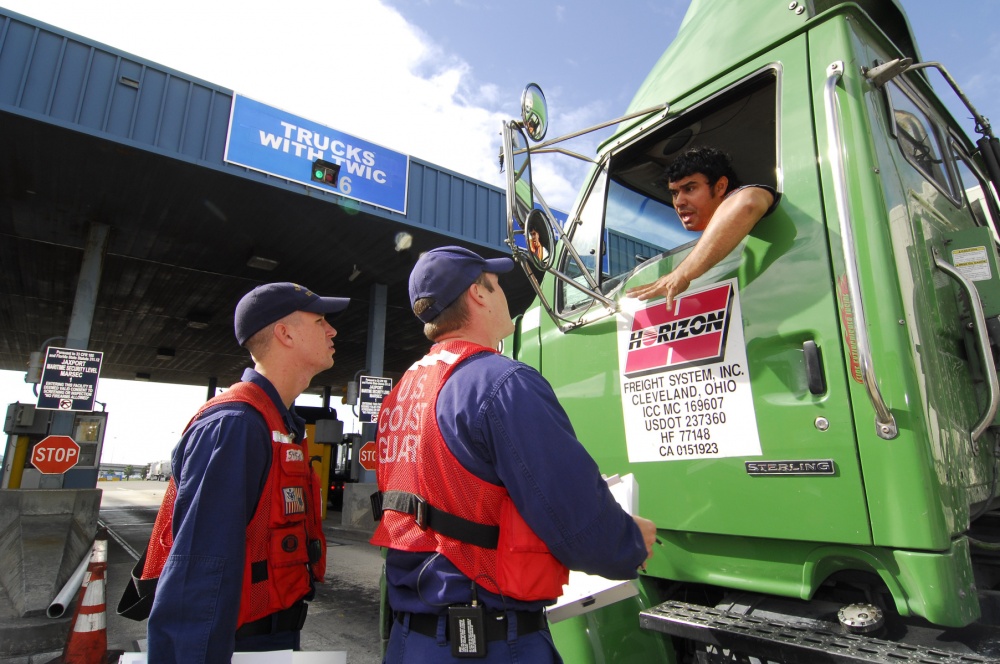Fire Prevention Week is October 9-15th
Read this week's Safety Bulletin, "Fire Prevention Week is October 9-15th." Enjoy reading the latest safety tips, subscribe to have the latest bulletins emailed directly to your inbox! Need a PDF version to download and share?
In This Issue:
- What to Do When a Fire Occurs in a CMV
- Drivers May Now Renew TWIC Online
National Fire Prevention Week is coming, and it is an excellent time to review with your drivers how to prevent fires and react to a fire that occurs in their commercial motor vehicles. This week two accidents, one on I95 and the other on I85 in North Carolina, involved both tractors and trailers engulfed in fire. Unfortunately, the driver of the tractor in the I85 accident lost their life.

Fires are an accurate exposure for drivers of commercial motor vehicles, and fire extinguisher inspection is a vital part of a driver’s daily vehicle inspection process. It amazes me how often I look at a truck and find the fire extinguisher has lost its pressure due to a leak or was used and returned to the truck without recharging. A driver’s actions during a fire can be crucial in saving lives and controlling the amount of loss.
What to Do When a Fire Occurs in a CMV
When a fire occurs in a commercial motor vehicle, the driver must know two things:
- Knowledge about fires.
- How to operate a fire extinguisher.
Fire safety and fire extinguisher operation should be part of every new driver’s orientation program. The Federal Motor Carrier Safety regulations require that all commercial motor vehicles have a fire extinguisher on board that is of the correct size, type, and properly secured and labeled. Did you know that a CMV with hazardous materials must have a different size extinguisher than those not carrying hazardous material?
Here are the requirements:
§ 393.95 Emergency equipment on all power units.
When a fire occurs in a Commercial Motor Vehicle, the driver should take the following actions:
- Get the truck off the roadway and into an open area if possible. Park away from buildings, trees, vehicles, or anything else that may catch fire.
- Call 911 on your cell phone to report the fire and location.
- If the fire is already to a size that cannot be extinguished, get away from the truck. Your life and the life of the public are your first responsibility.
- If you are operating a tractor trailer and can safely disconnect the trailer from the tractor, do so as not to damage both units and cargo in the fire.
- If the engine is on fire, turn off the engine as soon as possible.
- Do not open the hood if possible, and try extinguishing the fire from the truck's louvers, radiator, or underside. Opening the hood will provide additional oxygen to the fire and increase at a more rapid rate.
- Keep the doors shut if the fire is in your trailer or truck’s cargo box. Here again, additional oxygen will increase the intensity of the fire.
- A tire fire will not likely be extinguished with a fire extinguisher. Try throwing dirt or sand on the tire to smother the fire.
What you can do to prevent the likelihood of a fire starting in your Commercial Motor Vehicle:
- Complete a thorough pre- and post-trip inspection of your truck's fuel, electrical, exhaust systems, tires, and cargo daily.
- Keep the unit clean from excess grease, fuel, and oil.
- Monitor your dash gauges while in operation for signs of overheating.
- Utilize your mirrors for signs of smoke or flames.
- With new Post Emission 2007 and newer units, be aware of regeneration of the after-treatment program and where the regeneration occurs as exhaust temperatures reach high heat levels.
- Know the cargo you have on board and its fire potential.
Are you looking to find the size and weight laws by the state?
If so, go to the Xtra Lease website and download the free size and weight guide:
https://www.xtralease.com/size-weight-guide
Drivers May Now Renew TWIC Online
The Transportation Security Administration has announced that transportation workers, including truck drivers, may renew their Transportation Worker Identification Credential (TWIC) online. Effective August 11, 2022, TWIC holders no longer must go to an enrollment center in person or provide fingerprints to renew a TWIC. TSA will complete a revised Security Threat Assessment on the TWIC holder using the information already in the database.

A worker may apply for renewal of a TWIC up to one year before the expiration date.
Unfortunately, this does not also apply for Hazardous Materials Endorsement holders. Although the Security Threat Assessment is the same for TWICs and HMEs, a driver with an HME must apply for renewal every five years at the State Driver Licensing Agency that granted the original HME and submit new fingerprints.
Under a previous exemption issued by TSA, State Driver Licensing Agencies may issue an initial HME to applicants with a valid Transportation Worker Identification Credential. But a driver with an HME may not automatically receive a TWIC without going through the application process.
Idealease Will Present a Limited Number of Safety Seminars this Fall
Idealease and the National Private Truck Council NPTC will again be hosting a limited number of safety seminars in the fall of 2022. The one-day seminar this year will focus on new safety technologies available on trucks today, basic safety and compliance, regulation changes, load securement and CSA. The seminars and will be provided to all Idealease customers, potential customers and NPTC members at no charge. The seminar provides important information applicable for both the novice and experienced transportation professionals. Watch this list in future bulletins as additional seminars may be added.
To register for an upcoming seminar in the fall of 2022 click on the following link:
https://www.idealease.com/safety-seminars
Sep 21 | |
Oct 11 | |
Oct 13 | |
Oct 18 | |
Oct 25 |
*The Idealease Safety Bulletin is provided for Idealease locations and their customers and is not to be construed as a complete or exhaustive source of compliance or safety information. The Idealease Safety Bulletin is advisory in nature and does not warrant, guarantee, or otherwise certify compliance with laws, regulations, requirements, or guidelines of any local, state, or Federal agency and/or governing body, or industry standards.
